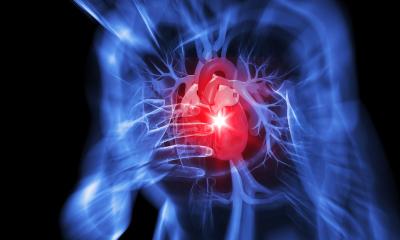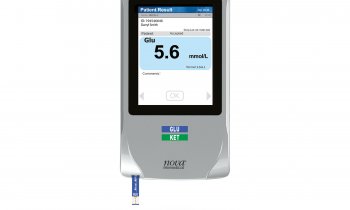
Image source: Adobe Stock/fizkes
News • Hypoglycemia, ketoacidosis and more
Extreme heat increases likelihood of diabetes-related emergencies
An increase in extreme heat events has been reported along with global warming. Heat exposure in ambient temperature is associated with all-cause diabetes mortality and all-cause hospitalization in diabetic patients.
However, the association between heat exposure and hospitalization for hyperglycemic emergencies, such as diabetic ketoacidosis (DKA), hyperosmolar hyperglycemic state (HHS), and hypoglycemia remained unclear. A new study led by the Tokyo Medical and Dental University aims to clarify the impact of heat exposure on the hospitalization for DKA, HHS, and hypoglycemia.
The researchers published their findings in the journal Environment International.
Recommended article

News • Global warming
Climate change increases heart attack risk
As sea levels and temperatures rise, so does the number of heat-related heart attacks: A study published in the European Heart Journal by scientists at Helmholtz Zentrum München and colleagues from a range of other Bavarian institutions shows that the risk of suffering a heat-induced heart attack has increased significantly in recent years.
Data of daily hospitalizations for hyperglycemic emergencies (i.e., DKA or HHS) and hypoglycemia was extracted from a nationwide administrative database in Japan and linked with temperature in each prefecture in Japan during 2012–2019. The researchers applied distributed lag non-linear model to evaluate the non-linear and lagged effects of heat exposure on hospitalization for hyperglycemic emergencies.
The pooled relative risk for hyperglycemic emergencies of heat effect (the 90th percentile of temperature with reference to the 75th percentile of temperature) and extreme heat effect (the 99th percentile of temperature with reference to the 75th percentile of temperature) over 0–3 lag days was 1.27 (95 %CI: 1.16–1.39) and 1.64 (95 %CI: 1.38–1.93), respectively. The pooled relative risk for heat effect on hospitalization for hypoglycemia and extreme heat effect over 0–3 lag days was 1.33 (95 %CI: 1.17–1.52) and 1.65 (95 %CI: 1.29–2.10), respectively. These associations were consistent by type of hyperglycemic emergencies and type of diabetes and were generally consistent by regions. "Heat exposure was associated with hospitalizations for DKA, HHS and hypoglycemia," the team concludes. "These results may be useful to guide preventive actions for the risk of fatal hyperglycemic emergencies and hypoglycemia."
Source: Tokyo Medical and Dental University
31.07.2022











